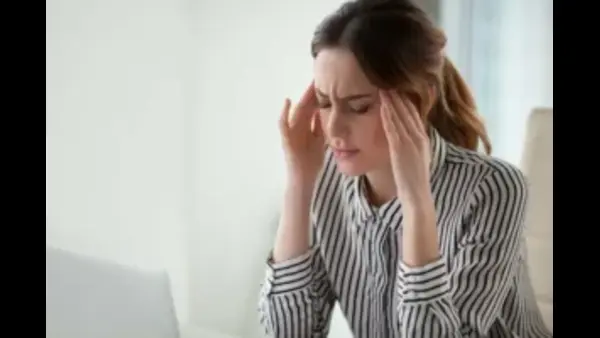Recognizing the Symptoms of Anxiety Disorders

Anxiety disorders are pervasive mental health conditions characterized by excessive worry, fear, and physiological responses that can significantly impact daily life. Recognizing the symptoms is crucial for early intervention and effective management. This article explores the various types of anxiety disorders, their symptoms, and the importance of seeking professional help for accurate diagnosis and treatment.
Introduction
Anxiety disorders affect millions of people worldwide, manifesting in diverse ways that can interfere with relationships, work, and overall well-being. Understanding the symptoms is the first step toward recognizing when anxiety transitions from normal reactions to distressing and impairing conditions.
Types of Anxiety Disorders
Anxiety disorders encompass several specific conditions, each with its own unique symptoms and triggers:
1. Generalized Anxiety Disorder (GAD)
GAD involves excessive worry and anxiety about various aspects of life, persisting for at least six months. Key symptoms include:
- The individual experiences persistent and excessive worry about everyday activities.
- Controlling worry is difficult.
- Restlessness or feeling on edge
- Fatigue
- Muscle tension
- Difficulty concentrating or mind going blank
2. Panic Disorder
Panic disorder is characterized by recurrent and unexpected panic attacks, which are sudden episodes of intense fear or discomfort. Symptoms may include:
- Rapid heart rate
- Sweating
- Trembling or shaking
- You may experience shortness of breath or a feeling of choking.
- Chest pain or discomfort
- Nausea or abdominal distress
- Dizziness, lightheadedness, or feeling faint
- Fear of losing control or dying
3. Social Anxiety Disorder (Social Phobia)
Social anxiety disorder is defined as intense fear or anxiety about social situations in which individuals may be scrutinized or judged by others. Symptoms include:
- I am afraid of social or performance situations.
- Fear of embarrassment or humiliation
- Social situations can either be avoided or endured with intense anxiety.
- Physical symptoms can include blushing, sweating, trembling, or nausea.
4. Specific Phobias
Specific phobias are intense fears of specific objects or situations, leading to avoidance behaviors. Common phobias include:
- Fear of heights (acrophobia)
- Fear of flying (aviophobia)
- Fear of spiders (arachnophobia)
- Fear of enclosed spaces (claustrophobia)
- A phobia of needles or medical procedures
5. Post-Traumatic Stress Disorder (PTSD)
PTSD can develop after exposure to a traumatic event, causing intrusive thoughts, nightmares, and avoidance behaviors. Symptoms may include:
- The traumatic event may cause intrusive memories or flashbacks.
- Reminders of the trauma should be avoided.
- Negative changes in mood or thoughts
- Hyperarousal, including difficulty sleeping or concentrating
The importance of recognizing symptoms
Recognizing the symptoms of anxiety disorders is crucial for several reasons:
- Early Intervention: Early recognition allows for prompt intervention and treatment, which can prevent symptoms from worsening and improve outcomes.
- Accurate Diagnosis: Proper diagnosis ensures appropriate treatment tailored to the specific anxiety disorder, enhancing treatment effectiveness.
- Improved Quality of Life: Identifying symptoms enables individuals to seek help, manage symptoms effectively, and regain control over their lives.
Seeking professional help
If you or someone you know experiences persistent anxiety symptoms that interfere with daily life, seeking professional help is essential.
- Primary Care Physician: Start by consulting a primary care physician who can assess symptoms, provide an initial evaluation, and offer referrals to mental health specialists if necessary.
- Mental Health Professional: Psychiatrists, psychologists, and therapists specializing in anxiety disorders can conduct comprehensive evaluations, provide accurate diagnoses, and recommend personalized treatment plans.
- Community Resources: Local mental health clinics, support groups, and hotlines can offer recursos, support, and guidance for individuals and families affected by anxiety disorders.
Types of Anxiety Disorders
- Generalized Anxiety Disorder (GAD): Involves persistent and uncontrollable worry about everyday matters, often accompanied by physical symptoms like restlessness, fatigue, and muscle tension.
- Panic Disorder: Marked by recurrent panic attacks—sudden episodes of intense fear or discomfort—that can lead to feelings of impending doom and physical symptoms such as rapid heartbeat and shortness of breath.
- Social Anxiety Disorder: Characterized by an intense fear of social situations where individuals fear judgment or embarrassment, leading to avoidance behaviors.
- Specific Phobias: Intense and irrational fears of specific objects or situations, such as heights, spiders, or flying, which provoke immediate anxiety responses.
- Separation Anxiety Disorder: Often diagnosed in children but can persist into adulthood, characterized by excessive fear or anxiety about separation from attachment figures, leading to distress.
Symptoms
Common symptoms across anxiety disorders include:
- Excessive Worry: Persistent and uncontrollable thoughts about potential threats or negative outcomes.
- Physical Symptoms: Such as increased heart rate, sweating, trembling, dizziness, or gastrointestinal discomfort.
- Avoidance Behavior: Avoiding situations or places that trigger anxiety, which can impair daily functioning and social interactions.
Causes and Risk Factors
- Genetics: Family history of anxiety disorders can increase susceptibility.
- Brain Chemistry: Imbalances in neurotransmitters (e.g., serotonin, dopamine) involved in mood regulation can contribute to anxiety disorders.
- Environmental Factors: Stressful life events, trauma, or chronic stress can trigger or exacerbate symptoms.
Treatment
Effective treatment strategies for anxiety disorders include:
- Therapy: Cognitive-behavioral therapy (CBT) helps individuals identify and change negative thought patterns and behaviors contributing to anxiety.
- Medication: Antidepressants, such as selective serotonin reuptake inhibitors (SSRIs), and anti-anxiety medications (e.g., benzodiazepines) may be prescribed to manage symptoms.
- Lifestyle Modifications: Regular exercise, adequate sleep, and stress management techniques (e.g., mindfulness, relaxation exercises) can help alleviate symptoms.
Conclusion
Recognizing the symptoms of anxiety disorders is the first step toward effective management and recovery. From generalized anxiety disorder to specific phobias and PTSD, each anxiety disorder presents unique challenges that can profoundly impact daily life. By understanding the symptoms and seeking professional help when needed, individuals can receive timely interventions, accurate diagnoses, and tailored treatment plans that address their specific needs. Early recognition not only alleviates distressing symptoms but also improves overall quality of life, empowering individuals to navigate anxiety disorders with confidence and resilience. If you or someone you know experiences symptoms of anxiety disorders, don’t hesitate to reach out for support and guidance from healthcare professionals who specialize in mental health and anxiety treatment.








